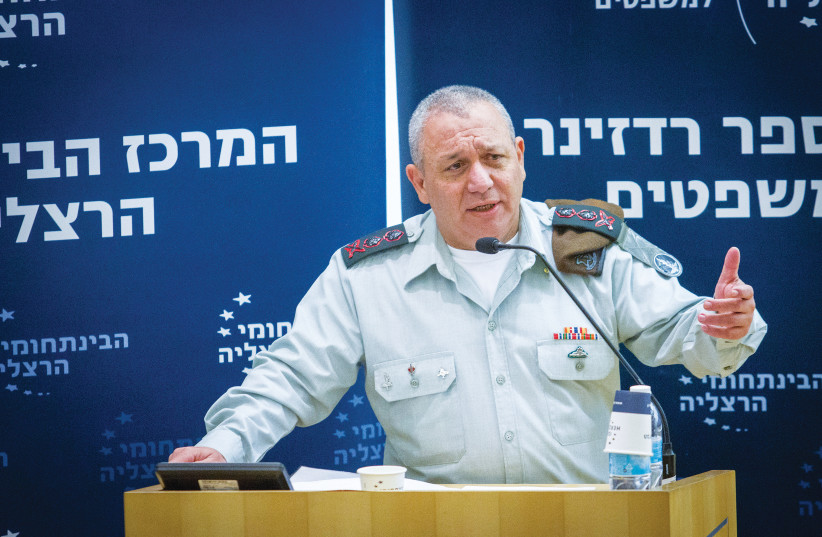With support for Hamas at 70% to 80% in the West Bank, it is just a matter of time before another outbreak of violence with the Palestinians occurs, according to former IDF chief of staff Lt.-Gen. (res.) Gadi Eisenkot.
“The question is not whether there will be another outbreak, but when and how intense it will be. It is quite clear that this will happen. There’s no way that it’s not going to happen,” he said in an interview with The Jerusalem Post’s sister publication Maariv, adding that it will happen “at the least convenient time and place for us.”
During Eisenkot’s term, hundreds of Palestinian youth carried out attacks against Israeli citizens and soldiers in the West Bank and inside Israel in what was called the “Knife Intifada.”
When confronted with a wave of violence that occurred under his watch in 2016, “we were a hair’s breadth away” from a larger scale of violence but were able to stop it, Eisenkot said.
The reason it did not descend even further was because Israel was able to develop a “plan of action” within three months and, making use of technology and cameras, soldiers acted against terrorists and not the Palestinian population at large, he said.

“We harnessed our technology for the war on terrorism with tremendous success,” Eisenkot said, adding that 2,500 to 3,500 potential attackers are arrested every year.
Nevertheless, the violence “expressed something profound... This is a ticking time bomb of a confused generation that has erupted once and will erupt again for sure,” he said. “The only question is when that will happen.”
Palestinian youth consider themselves “a lost generation” with no future, Eisenkot said.
Palestinian Authority President Mahmoud Abbas is nearing the end of his tenure, he said, adding that Israel should put together a plan to improve ties with the Palestinians “to reduce hostility and strengthen trust.”
The plan would consist of a joint effort between Israel, the Palestinians, Egypt, Jordan, the US and others and would see a “gradual separation” with security arrangements that would increase settlement building in the Jordan Valley while also providing a “dramatic” improvement in terms of civil and economic development in the West Bank, Eisenkot said.
“We need to change the reality of the situation because it will lead to a single state, which will destroy the Zionist dream,” he said. “One does not have to be a genius to understand the significance of millions of Palestinians mixed in with us along with the complex situation with Arab-Israelis.”
Israel has over the years pushed forward a “dangerous” policy that weakened the PA while it strengthened Hamas, he added.
Eisenkot, who hung up his uniform three years ago and has since been courted by various political parties, said a lack of any clear policy and the past decade in which Hamas has had more support than the PA in the West Bank will just lead to a continuation of the conflict.
“We are passing the problem over to future generations,” he said.
Despite the normalization agreements with Arab and Gulf States following the Abraham Accords, “the reality is that it is an unsolvable conflict,” Eisenkot said. “I do not see how we can reach the end of the conflict or the recognition of the Jewish state.”
